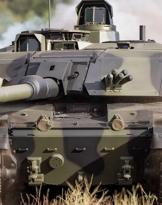According to Obnosov, the main difficulty in developing missiles, which will fly faster than sound, has been to design new materials capable of withstanding the very high temperatures caused by the hypersonic regime. We are talking, in fact, of missiles with a top speed of Mach six / eight (or even ten / twelve) with RamJet technology.
By the 2030 - added Obnosov - we will have developed the technology necessary to build crewed aircraft at hypersonic speed.
The general manager of the Tactical Missile Systems Corporation also stated clearly that the hypersonic missiles will equip the new generation PAK-DA bombers that will enter service by the 2023. Russia has begun development of a new strategic bomber in the 2014.
 The project, set aside for several years and known as PAK-DA (Russian acronym of "future long-range aircraft"), received the green light from the Russian leadership only a few months ago.
The project, set aside for several years and known as PAK-DA (Russian acronym of "future long-range aircraft"), received the green light from the Russian leadership only a few months ago.
According to Russian media, quoting sources from the Ministry of Defense, the Tupolev company will develop the PAK – DA. Russian engineers would be aiming at a subsonic aircraft in the shape of a "flying wing", which would guarantee superior "stealth ability".
The PAK-DA, according to the guidelines of the Ministry of Defense, will have to be equipped with advanced electronic warfare systems and armed with the new long-range nuclear cruise missiles, as well as a variety of high precision conventional weapons. The new bomber will go into production by the 2023 and will most likely be built at a new aircraft assembly line in the Kazan plant.
The PAK-DA will have to replace the current Russian strategic fleet consisting of 63 Tupolev Tu-95MS Bear and 13 Tu-160 Blackjack (opening photo).
Franco Iacch
(photo: Russian / web presidency)












